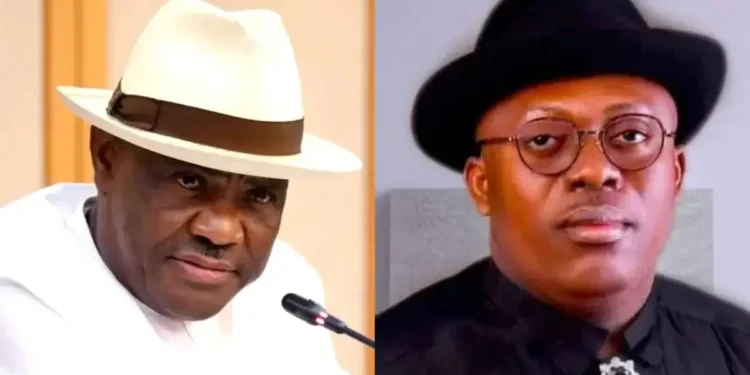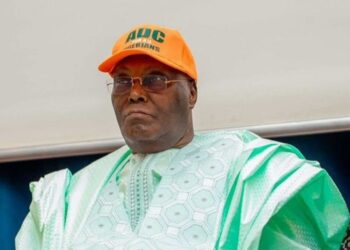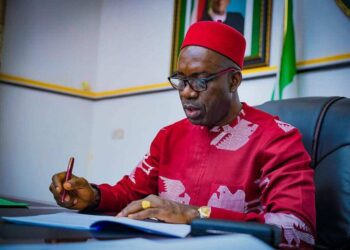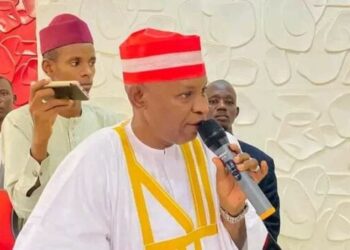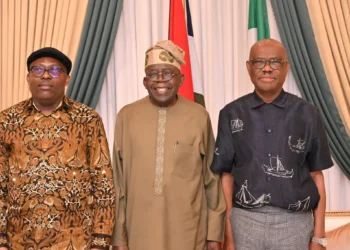Federal Capital Territory Minister Nyesom Wike expressed optimism that conditions are favorable for ending the six-month emergency rule in Rivers State, speaking after participating in Saturday’s local government elections that he described as proceeding smoothly across the state.
The former Rivers governor made his comments to journalists following his participation in the ongoing council polls, noting that the peaceful conduct of the elections demonstrates improved stability in the oil-rich state. His observations came as the September 18 expiration date for the emergency declaration approaches.
President Bola Tinubu had imposed emergency rule on Rivers State earlier this year due to escalating political tensions involving Governor Siminalayi Fubara, state assembly members, and Wike himself. The presidential intervention included suspending Fubara, his deputy, and the State House of Assembly for six months while appointing Vice Admiral Ibok-Ete Ekwe Ibas as sole administrator.
Wike characterized the current electoral process as evidence that political stability has been restored to the state. He emphasized that voters were participating actively in the local government elections without the disruptions that had previously characterized political activities in Rivers.
“As far as we are concerned, this election is peaceful, people are trooping out and at the end of the day the election has been conducted successfully and peacefully,” the FCT Minister stated, highlighting what he viewed as positive developments in the state’s political environment.
The minister specifically referenced the September 18 deadline for the emergency rule’s expiration, expressing confidence that normal democratic governance would resume as scheduled. His comments suggest that the conditions that initially prompted the federal intervention have been adequately addressed.
“I do know that by September 18, the state of emergency will expire and the state assembly will come back to their job and we will have a government at the grassroots level,” Wike explained, outlining expectations for the restoration of suspended democratic institutions.
Wike’s assessment focused on the establishment of representative government at multiple levels as evidence that Rivers State is ready to return to normal constitutional governance. He suggested that having elected representatives at both state and local levels would provide the political stability necessary for lifting emergency rule.
“The coast is clear for the state of emergency to be lifted, being that the state government has its representative and the local government has its representatives, so we are good to go,” he declared, indicating his belief that democratic representation had been successfully restored.
The minister’s comments represent a significant shift in tone regarding Rivers State’s political situation. Previous months had been characterized by intense conflicts between various political factions, leading to the federal government’s decision to suspend normal democratic processes.
Wike’s participation in the local government elections and his positive assessment of their conduct suggest that major political stakeholders are now engaged in the democratic process rather than pursuing confrontational approaches that had previously destabilized the state.
The September 18 expiration date for emergency rule will mark the end of Vice Admiral Ibas’s tenure as sole administrator. The successful conclusion of the emergency period would allow Governor Fubara and the suspended state assembly to resume their constitutional roles.
The restoration of normal governance would also mean the return of regular democratic processes including legislative sessions, cabinet meetings, and other institutional functions that were suspended during the emergency period. Local government operations would similarly return to elected leadership rather than appointed administrators.
Saturday’s local government elections represent a crucial test of whether Rivers State’s political environment has stabilized sufficiently to support normal democratic competition. The peaceful conduct of these polls, as observed by Wike and other participants, suggests that electoral processes can proceed without the disruptions that previously characterized political activities.

